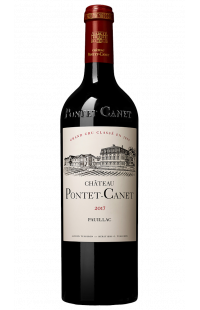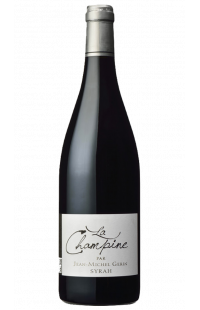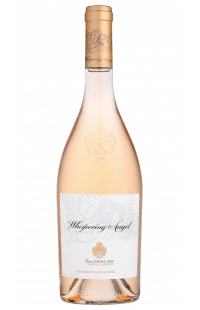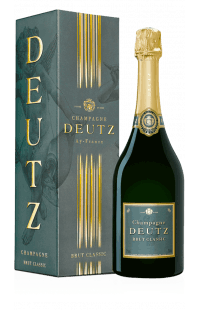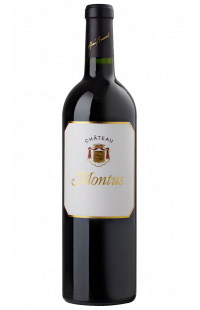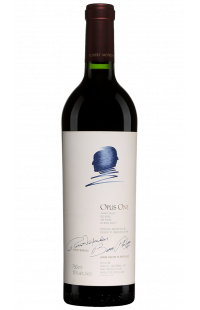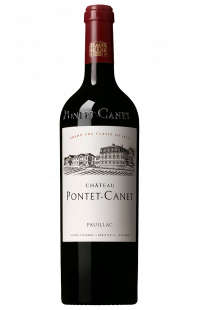- Menu
- All our wines
- Bordeaux
-
Rhône
-
Burgundy
-
Rosés Wines
-
Champagne
- France
-
World
- PRIMEURS
- ORGANIC WINES
Vins de Marsannay
There are 4 products.
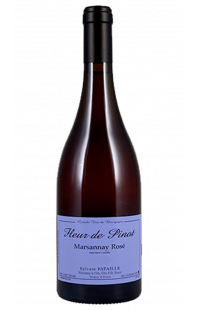
Domaine Sylvain Pataille : Marsannay Rosé Fleur de Pinot 2021
Burgundy - Bourgogne BlancMarsannay - Rosé wine -
Available in
- Bottle (75cl)
- 60.00€ / bottleTASTING NOTES
Specifications
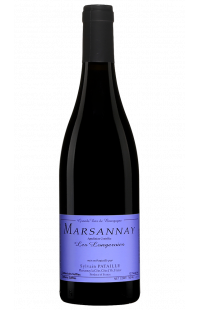
Domaine Sylvain Pataille : Marsannay Rouge Les Longeroies 2021
Burgundy - Bourgogne BlancMarsannay - Red Wine -
Available in
- Bottle (75cl)
- 61.00€ / bottleTASTING NOTES
Specifications
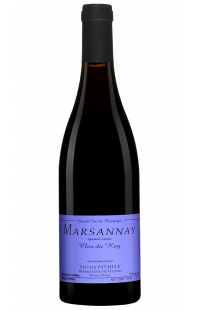
Domaine Sylvain Pataille : Marsannay Rouge Clos du Roy 2021
Burgundy - Bourgogne BlancMarsannay - Red Wine -
Available in
- Bottle (75cl)
- 61.00€ / bottleTASTING NOTES
Specifications
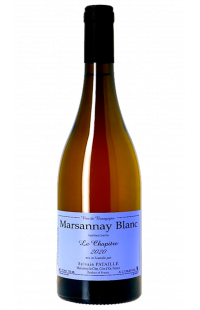
Domaine Sylvain Pataille : Marsannay Blanc Le Chapitre 2021
Burgundy - Bourgogne BlancMarsannay - White Wine -
Available in
- Bottle (75cl)
- 85.00€ / bottleTASTING NOTES
Specifications
Marsannay Wines: The Ultimate Guide for Wine Lovers
Discover everything about Marsannay wines. Learn about their history, grape varieties, winemaking methods, and much more to understand what makes these wines so unique.
Marsannay wines are often underrated, but they deserve a prominent place in the world of wine enthusiasts. Located at the northern end of the Côte de Nuits in Burgundy, the Marsannay appellation produces high-quality red, white, and rosé wines. In this article, we will delve deep into what makes Marsannay wines so special, from their rich history to their unique winemaking methods. Get ready to discover a hidden treasure of the Burgundian vineyard.
Marsannay Wines
Introduction to Marsannay Wines
Marsannay wines originate from one of Burgundy's most prestigious climats. Known for their complexity and depth, these wines are a reflection of a viticultural tradition that dates back several centuries.
History and Tradition
The production of wines in Marsannay dates back to the Roman era, when vineyards were first planted in this region. Cistercian monks later played a crucial role in developing viticulture in Marsannay during the Middle Ages. These viticultural pioneers perfected cultivation and winemaking techniques, establishing a tradition that continues to this day.
Geographical Location
Marsannay is located at the northern end of the Côte de Nuits, a region renowned for its exceptional red wines. This climate benefits from ideal exposure and unique geological conditions that favor the production of unparalleled quality wines.
Terroirs and Soils
The terroirs of Marsannay consist of calcareous marl, clay-limestone, and gravel soils. This variety of soils contributes to the complexity of the wines produced in the region. Calcareous soils, in particular, are known for producing wines with good acidity and excellent aging potential.
Grape Varieties of Marsannay
Pinot Noir
Pinot Noir is the main grape variety used for Marsannay's red wines. This delicate grape is appreciated for its ability to express the terroir, producing wines with red and black fruit aromas, floral notes, and elegant structure.
Chardonnay
Chardonnay is the grape variety used for Marsannay's white wines. Wines produced from this grape are often rich and complex, with aromas of white fruits, flowers, and marked minerality.
Pinot Blanc
Pinot Blanc is a less common grape variety in Marsannay but is used to add diversity to the white wines. It brings fresh fruit notes and a creamy texture to the wines.
Winemaking Methods in Marsannay
Traditional Techniques
Winemakers in Marsannay adhere to traditional winemaking methods that highlight the unique character of the terroir. Fermentation often takes place in open vats, with strict temperature control to preserve the purity of the aromas.
Modern Innovations
While respecting traditions, Marsannay vintners also integrate modern innovations to enhance wine quality. The use of advanced technologies for fermentation control and soil analysis allows for more precise and expressive wines.
Styles of Marsannay Wines
Red Wines
Marsannay's red wines are primarily made from Pinot Noir. They are distinguished by their elegance, with aromas of cherry, raspberry, and spicy notes. On the palate, they are typically well-balanced, with fine tannins and a persistent finish.
White Wines
Marsannay's white wines, produced from Chardonnay, are known for their richness and complexity. They exhibit aromas of apple, pear, white flowers, and a pronounced minerality that reflects the region's unique terroir.
Rosé Wines
Marsannay is also famous for its rosé wines, which are among the best in Burgundy. These wines are fresh and fruity, with aromas of strawberry, redcurrant, and good acidity, making them perfect for summer consumption.
Tasting Marsannay Wines
Tasting Notes
Tasting a Marsannay wine is a unique sensory experience. Reds offer aromas of red fruits, earthy and spicy notes. Whites captivate with aromas of white fruits, floral nuances, and vibrant minerality. Rosés are light and refreshing, perfect for a summer tasting.
Food and Wine Pairings
Marsannay wines pair wonderfully with a variety of dishes. Reds are perfect with grilled meats, saucy dishes, and aged cheeses. Whites superbly accompany seafood, grilled fish, and poultry, while rosés are ideal with salads, light dishes, and appetizers.
Producers of Marsannay
Renowned Estates
Among Marsannay's most renowned estates are Domaine Bruno Clair, Domaine Charles Audoin, and Domaine René Bouvier. These producers are recognized for their commitment to quality and their ability to produce wines that faithfully reflect Marsannay's terroir.
Emerging Vintners
In addition to established estates, Marsannay is seeing the rise of new vintners who bring fresh ideas and innovative techniques. These young winemakers contribute to the region's dynamism and the ever-increasing quality of its wines.
Market and Economy of Marsannay Wines
Exports and Local Market
Marsannay wines are appreciated both in the local market and internationally. Although production is relatively limited, these wines find their place on tables of wine enthusiasts worldwide. Exports are growing, particularly to the United States, Japan, and the United Kingdom.
Pricing and Accessibility
Marsannay wines are often considered to offer excellent value for money, especially compared to more famous Burgundian appellations. Their accessibility allows enthusiasts to discover high-quality wines without breaking the bank.
Wine Tourism in Marsannay
Wine Routes
Marsannay is an ideal destination for wine tourism. Visitors can follow the Grand Cru Route, which traverses the region and allows the discovery of Marsannay's vineyards and estates. This route offers a complete immersion into the world of Burgundian wine.
Tastings and Events
The region hosts numerous events and tastings throughout the year, allowing visitors to taste Marsannay wines and meet the winemakers. Harvest festivals, private tastings, and cellar visits are opportunities to discover and appreciate these exceptional wines.
Environmental Impact and Sustainable Viticulture
Ecological Practices
Marsannay vintners are increasingly aware of the importance of environmental sustainability. Many adopt ecological practices such as reducing pesticides, organic and biodynamic farming. These environmentally friendly methods help preserve biodiversity and the quality of the terroir.
Labels and Certifications
Several Marsannay estates have obtained organic or biodynamic certifications, attesting to their commitment to sustainable viticulture. These labels are a mark of quality for environmentally conscious consumers.
Frequently Asked Questions about Marsannay Wines
What is the history of Marsannay wines?
The history of Marsannay wines dates back to the Roman era. Cistercian monks significantly developed viticulture in Marsannay during the Middle Ages, and the appellation was officially recognized in 1987.
What are the main grape varieties used?
The main grape varieties in Marsannay are Pinot Noir for red wines and Chardonnay for white wines. Pinot Blanc is also used for some white wines.
How to taste a Marsannay wine?
To taste a Marsannay wine, it is recommended to serve it at an appropriate temperature (15-18°C for reds, 10-12°C for whites and rosés) and take the time to appreciate its aromas and structure on the palate.
What are the best food and wine pairings?
Marsannay reds pair well with grilled meats and aged cheeses. Whites are perfect with seafood and grilled fish, while rosés go excellently with salads and light dishes.
Which wine estates should I visit?
Among the must-visit estates in Marsannay are Domaine Bruno Clair, Domaine Charles Audoin, and Domaine René Bouvier, known for their high-quality wines and warm hospitality.
How does climate change affect viticulture in Marsannay?
Climate change affects viticulture in Marsannay by altering grape maturation cycles and increasing the risk of diseases. Vintners are adapting their practices by adopting sustainable viticultural techniques.
Conclusion
Marsannay wines represent a valuable and often underestimated part of Burgundian viticultural heritage. Thanks to their rich history, unique terroir, and the passion of vintners, these wines offer a diversity and quality that deserve to be discovered. Whether you are an experienced wine enthusiast or a curious novice, Marsannay wines are an invitation to explore and appreciate the subtleties of the Burgundy vineyard.
